Do Cashews Contain Zinc? How Much Zinc Is In Cashews?
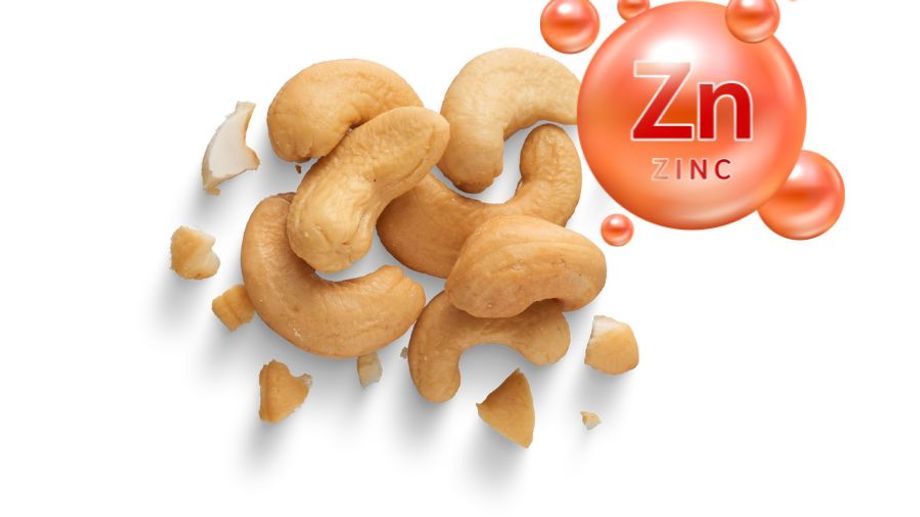
Mục lục
Cashews are a nutritious nut that contains a lot of nutrients. So do cashews contain zinc? How much zinc is in cashews? This is probably a question that many people are wondering.
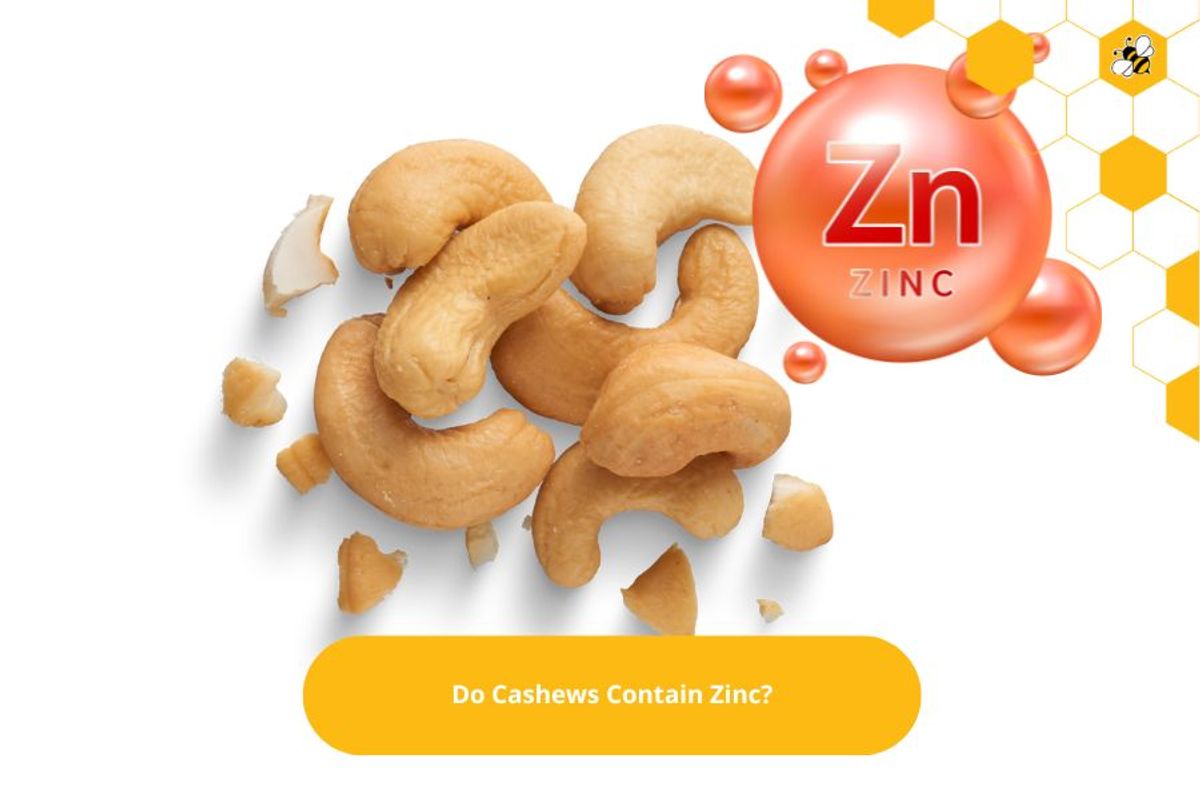
Do Cashews Contain Zinc? How Much Zinc Is in Cashews
Cashews contain a significant amount of zinc. A 100-gram serving of cashews (about 3 ounces) provides about 6 mg of zinc, which is nearly 20% of the recommended daily intake. Zinc is an important mineral for health, involved in many processes in the body, including the immune system, protein metabolism, cell formation, and many other functions.
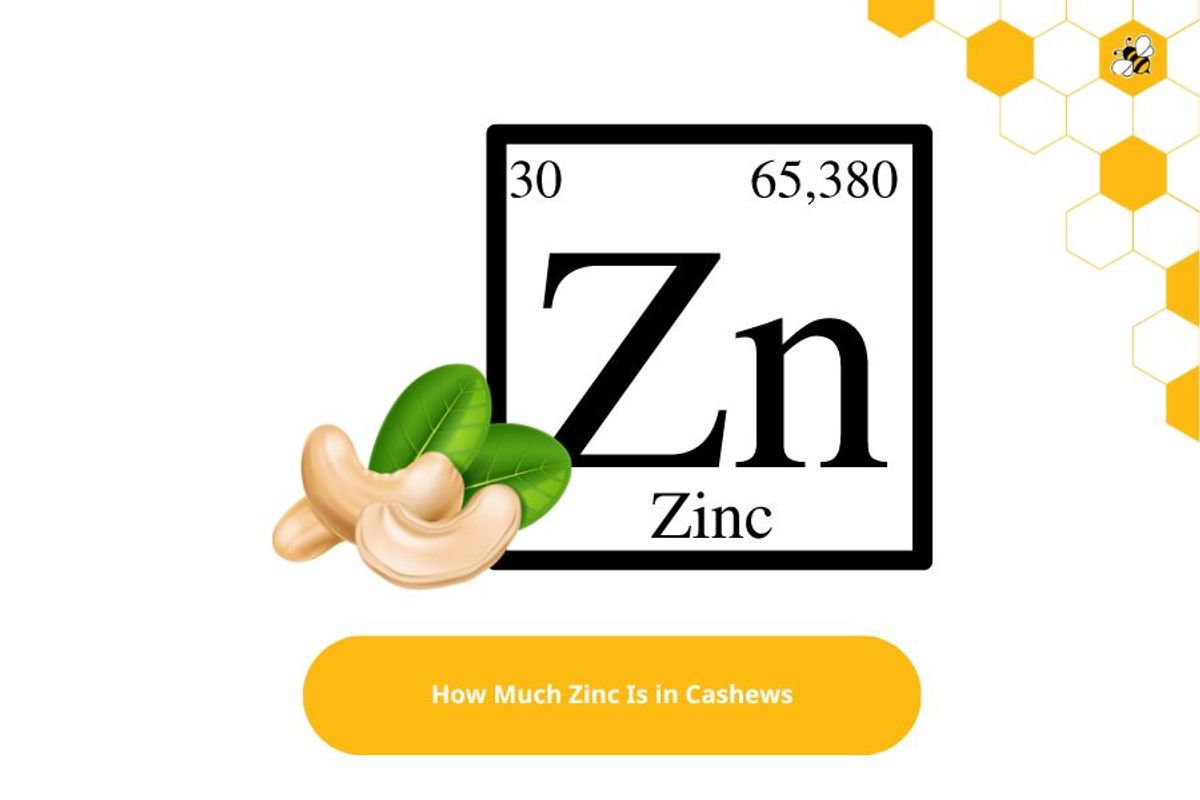
What is Zinc?
Zinc, also known as Zinc, is an essential mineral for humans and animals. In Vietnamese, it is called “zinc,” while in English, we use the term “zinc.” Zinc plays an important role in many aspects of health:
The Role of Zinc in the Body
Zinc is involved in more than 200 enzymes in the body. Enzymes use zinc to create many important compounds and structures necessary for body function.
It is also involved in the activity of many hormones, including insulin, growth hormone, and sex hormones such as testosterone and estrogen.
Zinc plays an important role in boosting immunity, brain development, and maintaining healthy skin and muscles.
It is also involved in the activity of many hormones, including insulin, growth hormone, and sex hormones such as testosterone and estrogen.
Zinc plays an important role in boosting immunity, brain development, and maintaining healthy skin and muscles.
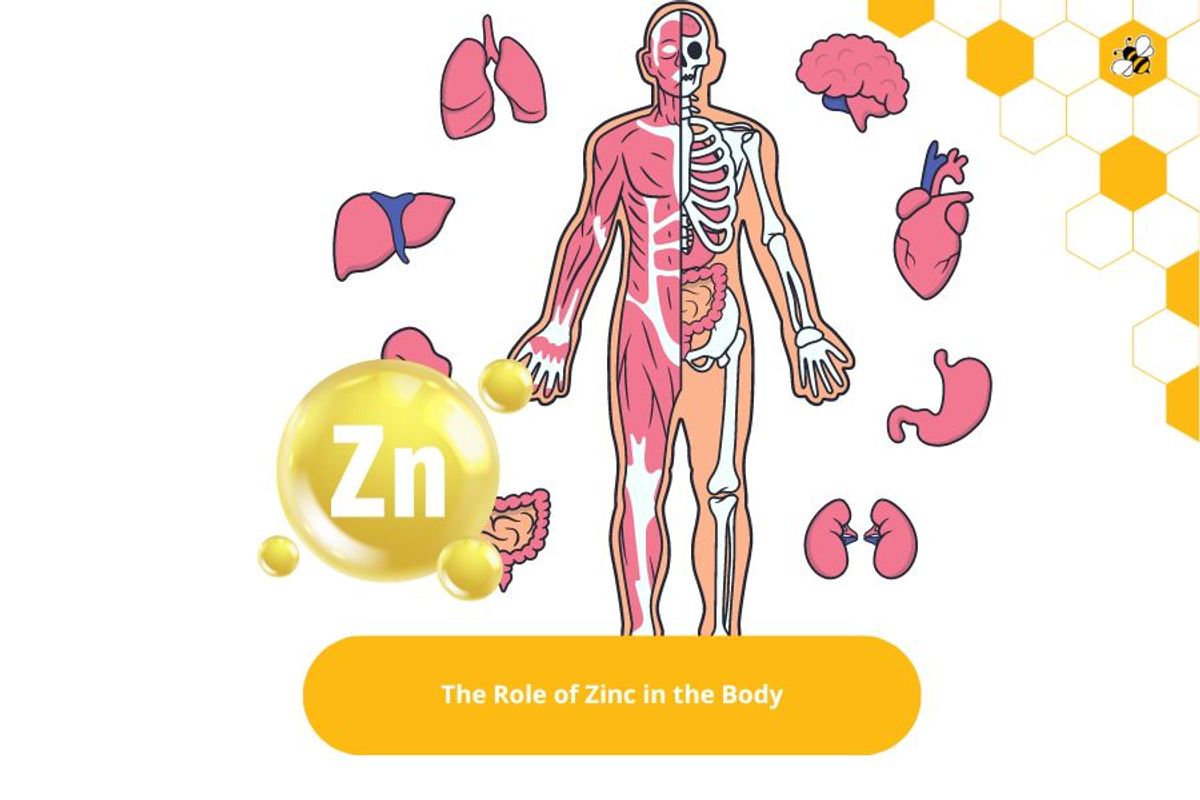
Zinc Deficiency Symptoms
Zinc deficiency can lead to susceptibility to infection, depression, decreased sense of taste and smell, acne, growth retardation in children, mouth ulcers, and testicular atrophy.
Although zinc deficiency is rare in developed countries, mild zinc deficiency is common in infants and the elderly in the United States.
Although zinc deficiency is rare in developed countries, mild zinc deficiency is common in infants and the elderly in the United States.
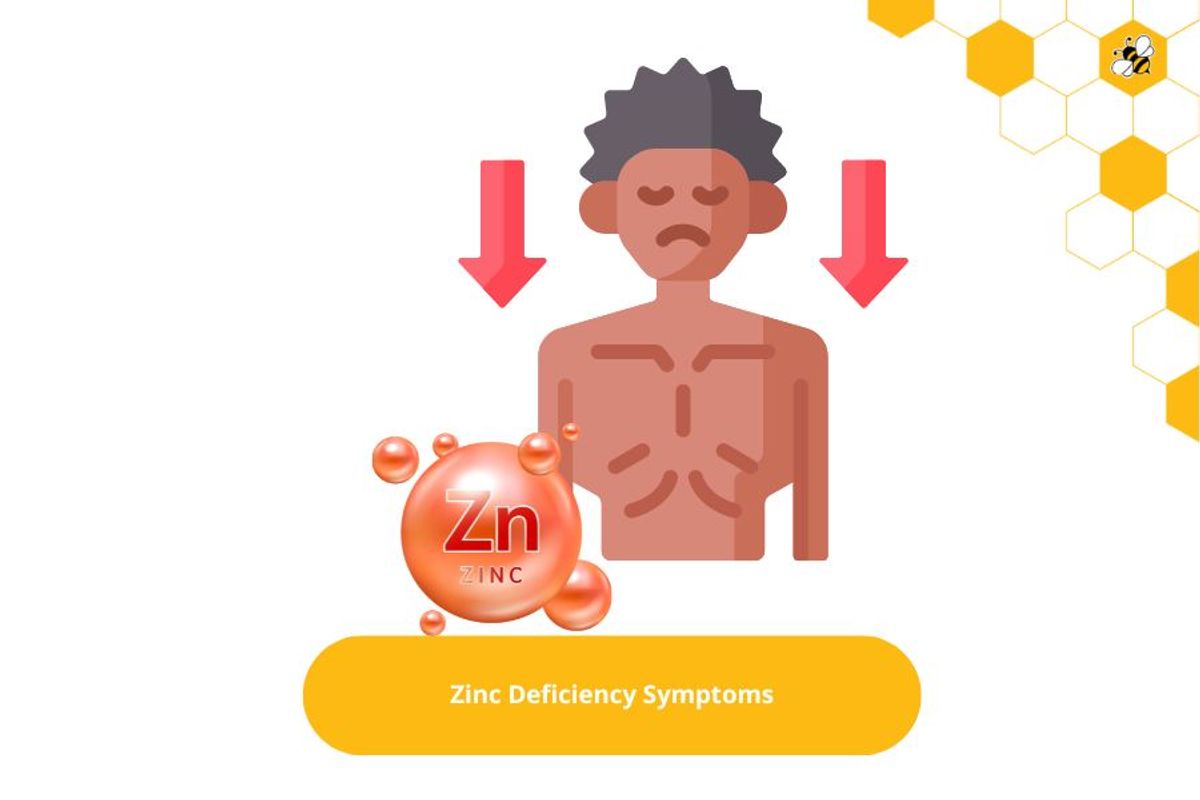
Sources of Zinc
Foods rich in Zinc include cashews, chicken, seafood, pumpkin seeds, soybeans, and milk.
Zinc can also be taken as a lozenge or supplement.
Benefits of Zinc include maintaining heart health, supporting the liver, improving skin condition, boosting immunity, and more.
Zinc can also be taken as a lozenge or supplement.
Benefits of Zinc include maintaining heart health, supporting the liver, improving skin condition, boosting immunity, and more.
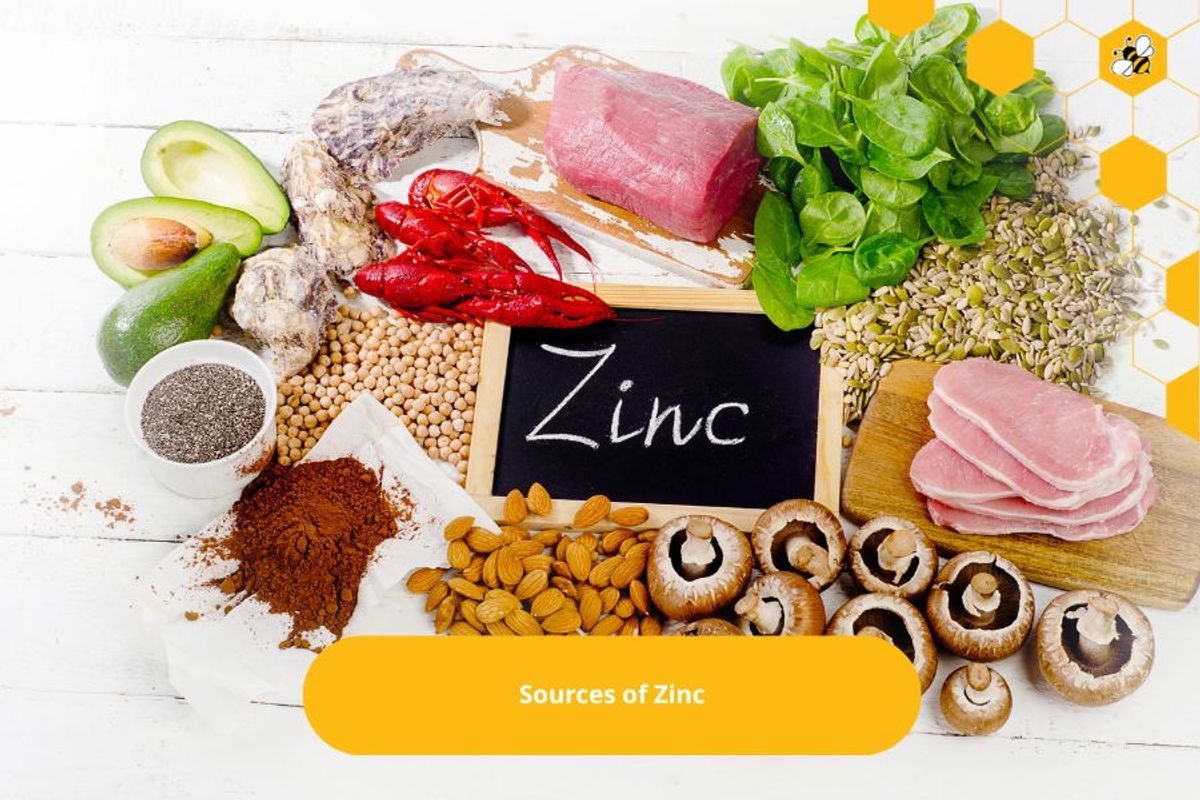
Benefits of zinc
Zinc cream (also known as zinc cream) has many beneficial effects on the skin and health. Here are some important effects of zinc cream:
Acne skin care
Zinc is an essential mineral for the body, not just for acne skin. Here are the important effects of zinc in treating acne skin:
Treatment of infection: Zinc has the ability to enhance the function of macrophages and neutrophils. This helps reduce inflammation and supports the wound-healing process on acne skin.
Reduce inflammation: Zinc has anti-inflammatory properties, helping to reduce redness and irritation associated with acne.
Inhibit sebum production: Zinc helps control oil secretion, reducing oily skin and acne.
Improve hypertrophic and keloid scars: Zinc supports collagen regeneration, helping to reduce the appearance of acne scars.
Reduce skin irritation and itching: Zinc has the effect of soothing the skin and reducing irritation.
Preventing extrinsic aging and skin cancer: Zinc plays an important role in maintaining skin health and preventing aging.
To supplement zinc, you can use zinc-containing products such as Zinc PCA or Zinc Oxide (ZnO) in cosmetics. Maintain a varied diet to ensure adequate zinc supply for your body and skin!
Zinc cream is often used to treat acne and inflammatory acne.
It helps control excess oil, reduce inflammation, and heal skin lesions.
Treatment of infection: Zinc has the ability to enhance the function of macrophages and neutrophils. This helps reduce inflammation and supports the wound-healing process on acne skin.
Reduce inflammation: Zinc has anti-inflammatory properties, helping to reduce redness and irritation associated with acne.
Inhibit sebum production: Zinc helps control oil secretion, reducing oily skin and acne.
Improve hypertrophic and keloid scars: Zinc supports collagen regeneration, helping to reduce the appearance of acne scars.
Reduce skin irritation and itching: Zinc has the effect of soothing the skin and reducing irritation.
Preventing extrinsic aging and skin cancer: Zinc plays an important role in maintaining skin health and preventing aging.
To supplement zinc, you can use zinc-containing products such as Zinc PCA or Zinc Oxide (ZnO) in cosmetics. Maintain a varied diet to ensure adequate zinc supply for your body and skin!
Zinc cream is often used to treat acne and inflammatory acne.
It helps control excess oil, reduce inflammation, and heal skin lesions.
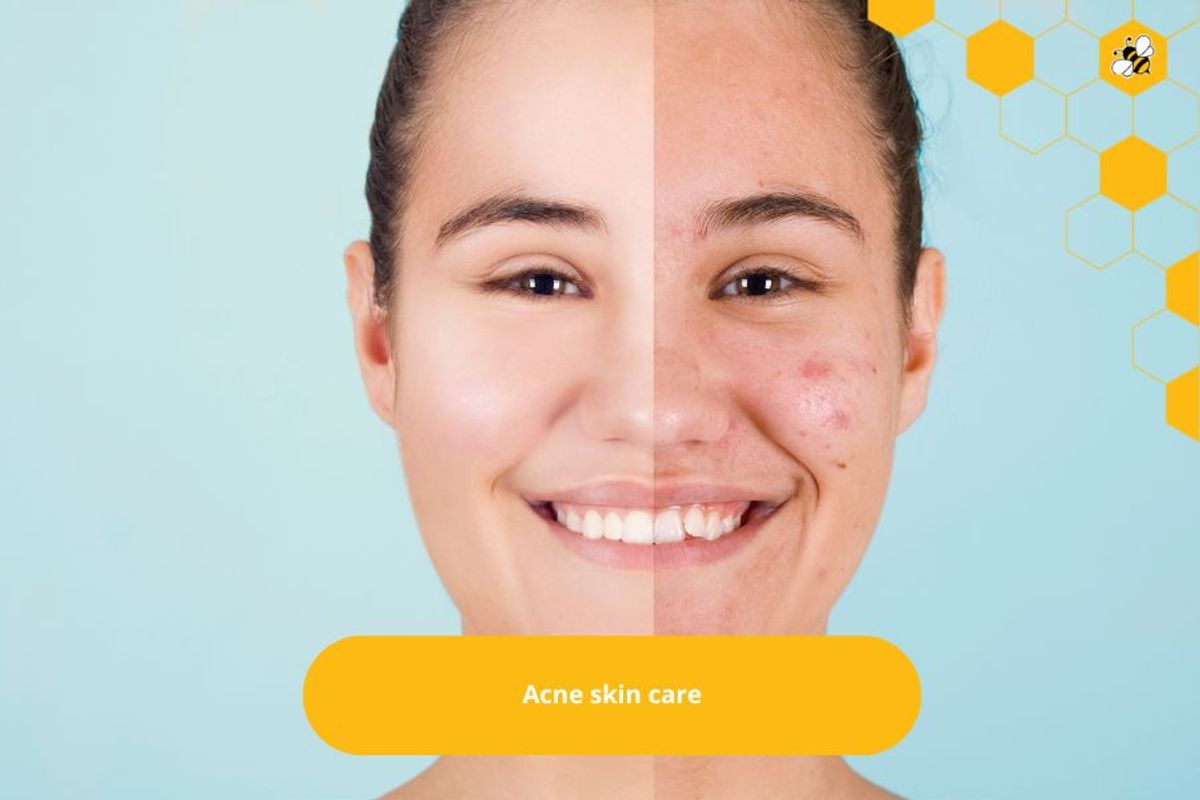
Protects Skin from UV Rays
Zinc plays an important role in protecting the skin from the effects of UV rays. Here are some points related to the effect of zinc in protecting the skin:
Protects Skin from Sunlight: Zinc Oxide is a key ingredient in physical sunscreens. It acts as a protective layer, preventing ultraviolet rays (UVA and UVB) from penetrating the skin. Unlike chemical sunscreens, zinc does not absorb UV rays but instead reflects them away from the skin. It helps prevent sunburn, premature aging, and skin cancer.
Protects Skin from Sunlight: Zinc Oxide is a key ingredient in physical sunscreens. It acts as a protective layer, preventing ultraviolet rays (UVA and UVB) from penetrating the skin. Unlike chemical sunscreens, zinc does not absorb UV rays but instead reflects them away from the skin. It helps prevent sunburn, premature aging, and skin cancer.
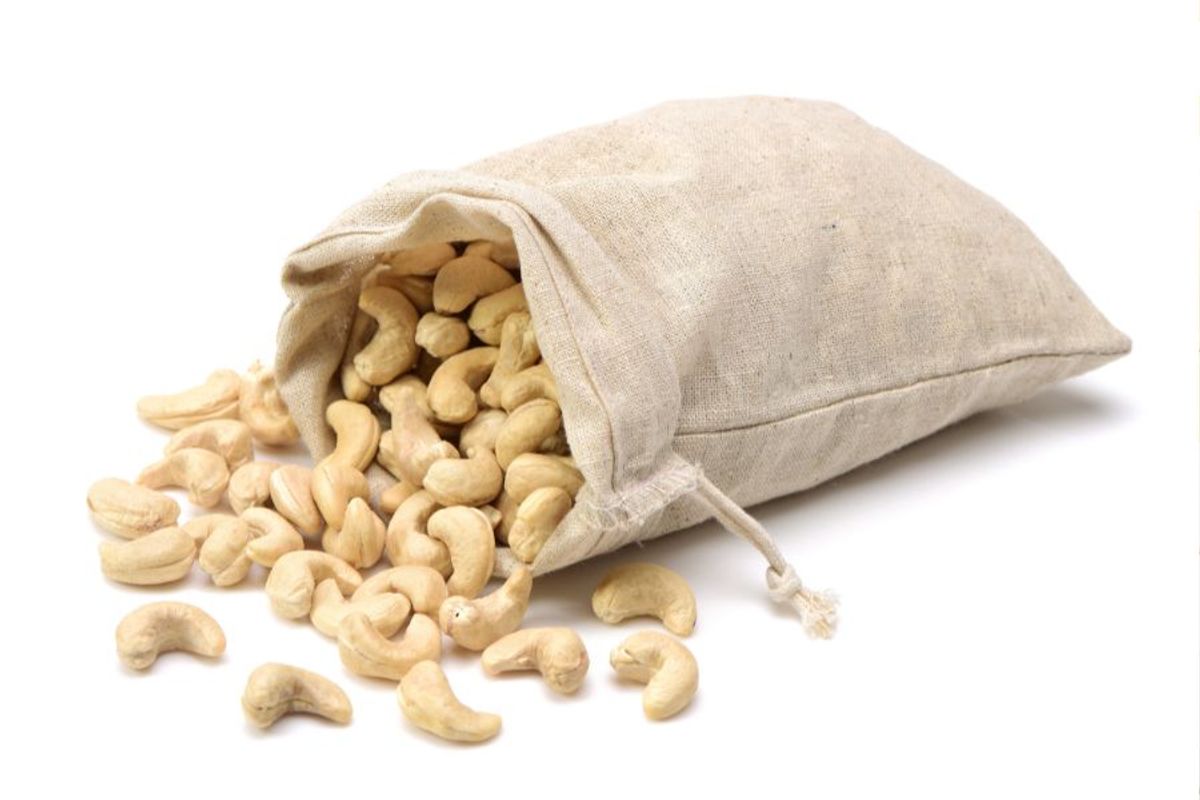
Enhances Wound Healing
Zinc is involved in the regeneration of skin cells and enhances wound healing.
It aids in the recovery of skin after damage or inflammation.
It aids in the recovery of skin after damage or inflammation.
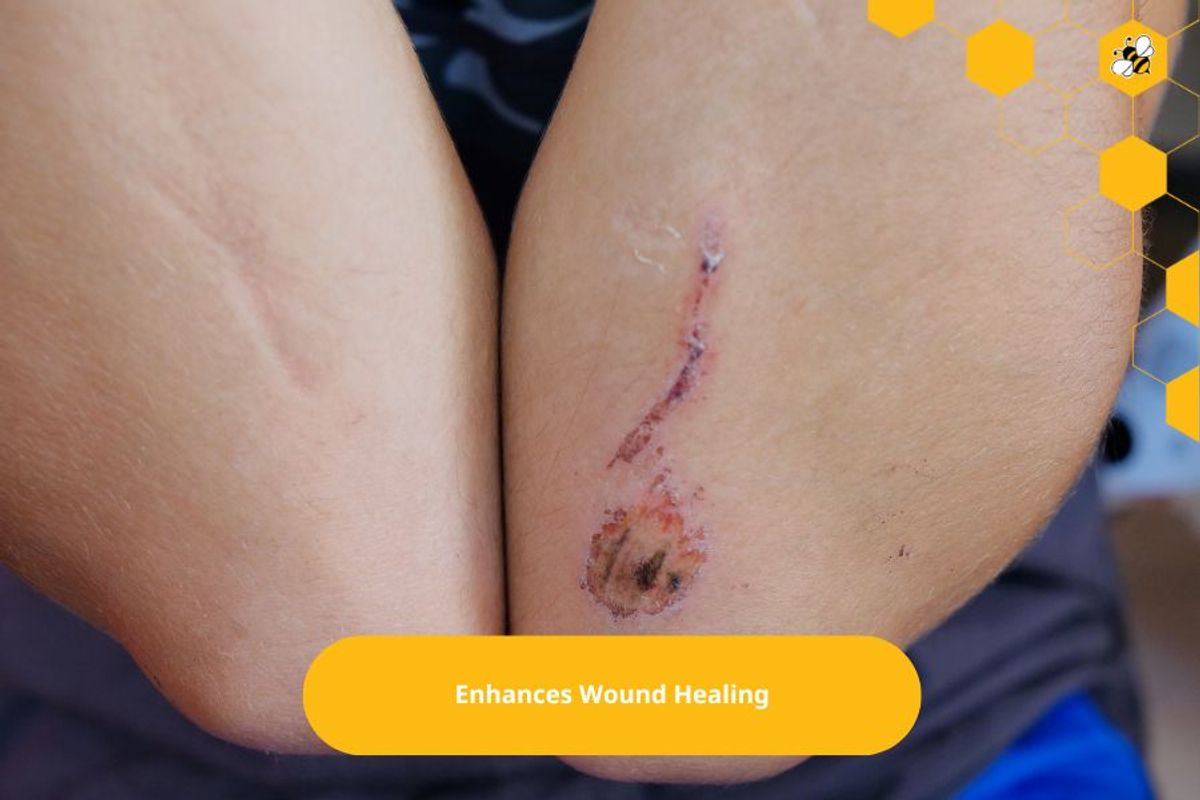
Anti-inflammatory and anti-bacterial
Zinc plays an important role in maintaining a strong immune system. It is involved in cell regeneration and enhances the body's ability to detect and destroy bacteria, viruses, and other pathogens. This helps the body resist many diseases and protect against health risks.
Zinc cream can soothe the skin, reduce inflammation, and prevent the growth of bacteria.
This helps reduce inflammation and redness on the skin.
Zinc cream can soothe the skin, reduce inflammation, and prevent the growth of bacteria.
This helps reduce inflammation and redness on the skin.
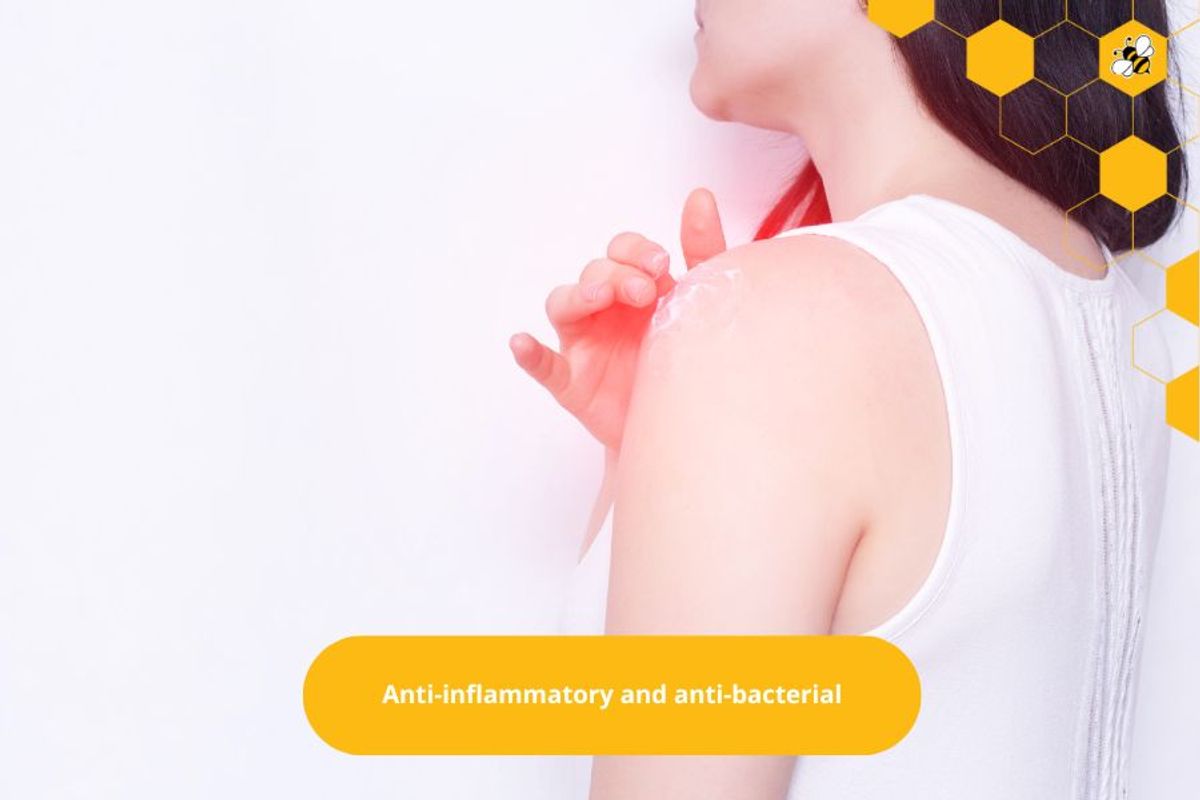
Supports the skin's recovery process after injury
Zinc is involved in the production of collagen, which helps the skin recover quickly after damage.
It also supports the recovery process after skin surgery.
Note: Before using zinc cream, you should consult a dermatologist to ensure that it is suitable for your skin.
It also supports the recovery process after skin surgery.
Note: Before using zinc cream, you should consult a dermatologist to ensure that it is suitable for your skin.
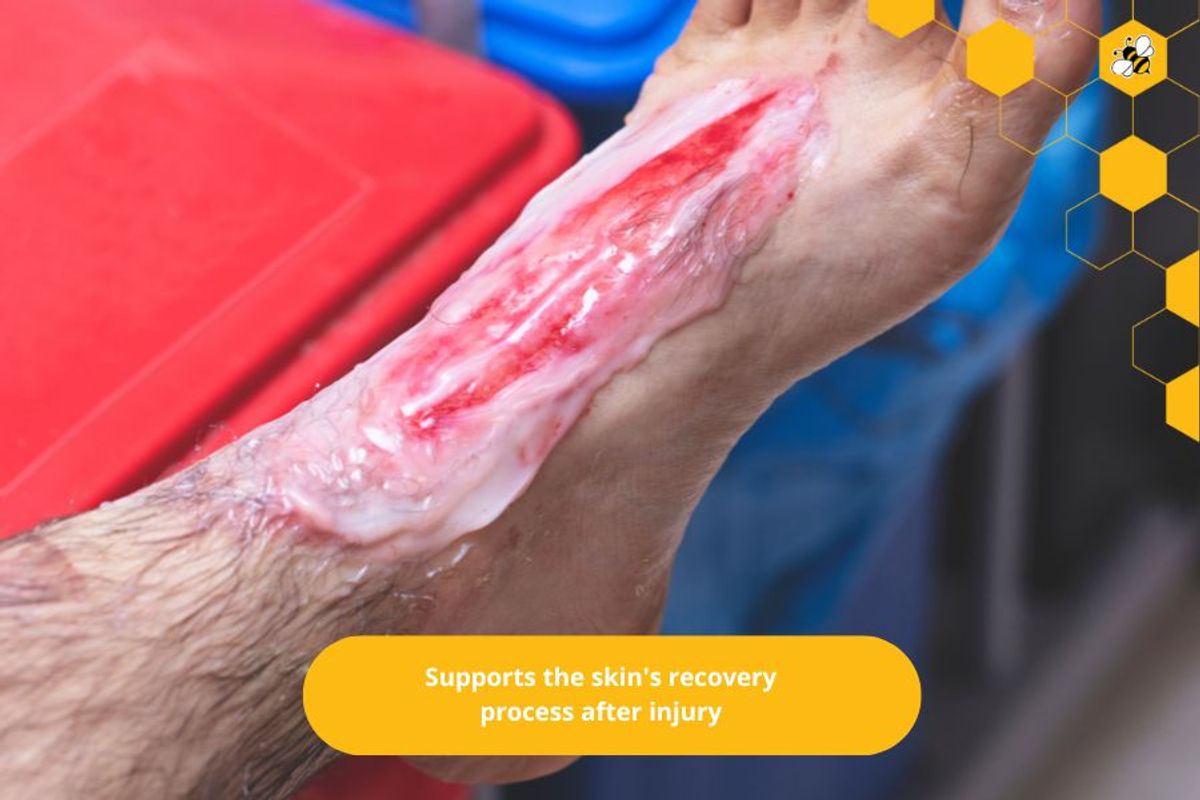
How to eat cashews with your diet to supplement zinc appropriately
Cashews are a good source of zinc for the body. To supplement zinc appropriately, you can combine cashews with other foods rich in zinc. Here are some combinations to choose from:
Meat: Red meat is an excellent source of zinc. About 100 grams of beef contains 4.8 mg of zinc, accounting for 44% of the zinc the body needs each day. In addition to beef, lamb and pork also provide zinc.
Shellfish: Oysters, crabs, clams, and mussels are foods rich in zinc. For example, 6 medium oysters provide 32 mg of zinc, equivalent to 291% of the daily zinc requirement.
Legumes: Green beans, and lentils contain a significant amount of zinc. 100 grams of cooked lentils contain about 12% of the body's daily zinc requirement.
Nuts: Hemp seeds, pumpkin seeds, and sesame seeds are also good sources of zinc. For example, 30 grams of hemp seeds contain about 31% and 43% of the recommended daily intake of zinc for men and women, respectively.
Zinc-rich foods: Cashews can be combined with other zinc-rich foods such as pumpkin seeds, chicken, beef, seafood (such as scallops, shrimp, salmon), tofu, and pomegranate seeds. Combining them in one meal helps increase zinc intake.
Vitamin C-rich foods: Vitamin C helps increase zinc absorption. Combine cashews with vitamin C-rich foods such as oranges, lemons, kiwis, strawberries, or collard greens.
Protein-rich foods: Protein also helps increase zinc absorption. Combine cashews with meat, fish, beans, peanuts, or milk to get enough protein.
Phytate-free foods: Phytate can interfere with zinc absorption. Avoid combining cashews with foods rich in phytate acids such as barley, cereals, and seeds.
Meat: Red meat is an excellent source of zinc. About 100 grams of beef contains 4.8 mg of zinc, accounting for 44% of the zinc the body needs each day. In addition to beef, lamb and pork also provide zinc.
Shellfish: Oysters, crabs, clams, and mussels are foods rich in zinc. For example, 6 medium oysters provide 32 mg of zinc, equivalent to 291% of the daily zinc requirement.
Legumes: Green beans, and lentils contain a significant amount of zinc. 100 grams of cooked lentils contain about 12% of the body's daily zinc requirement.
Nuts: Hemp seeds, pumpkin seeds, and sesame seeds are also good sources of zinc. For example, 30 grams of hemp seeds contain about 31% and 43% of the recommended daily intake of zinc for men and women, respectively.
Zinc-rich foods: Cashews can be combined with other zinc-rich foods such as pumpkin seeds, chicken, beef, seafood (such as scallops, shrimp, salmon), tofu, and pomegranate seeds. Combining them in one meal helps increase zinc intake.
Vitamin C-rich foods: Vitamin C helps increase zinc absorption. Combine cashews with vitamin C-rich foods such as oranges, lemons, kiwis, strawberries, or collard greens.
Protein-rich foods: Protein also helps increase zinc absorption. Combine cashews with meat, fish, beans, peanuts, or milk to get enough protein.
Phytate-free foods: Phytate can interfere with zinc absorption. Avoid combining cashews with foods rich in phytate acids such as barley, cereals, and seeds.
Also, incorporate these foods into a varied diet to ensure you get enough zinc.
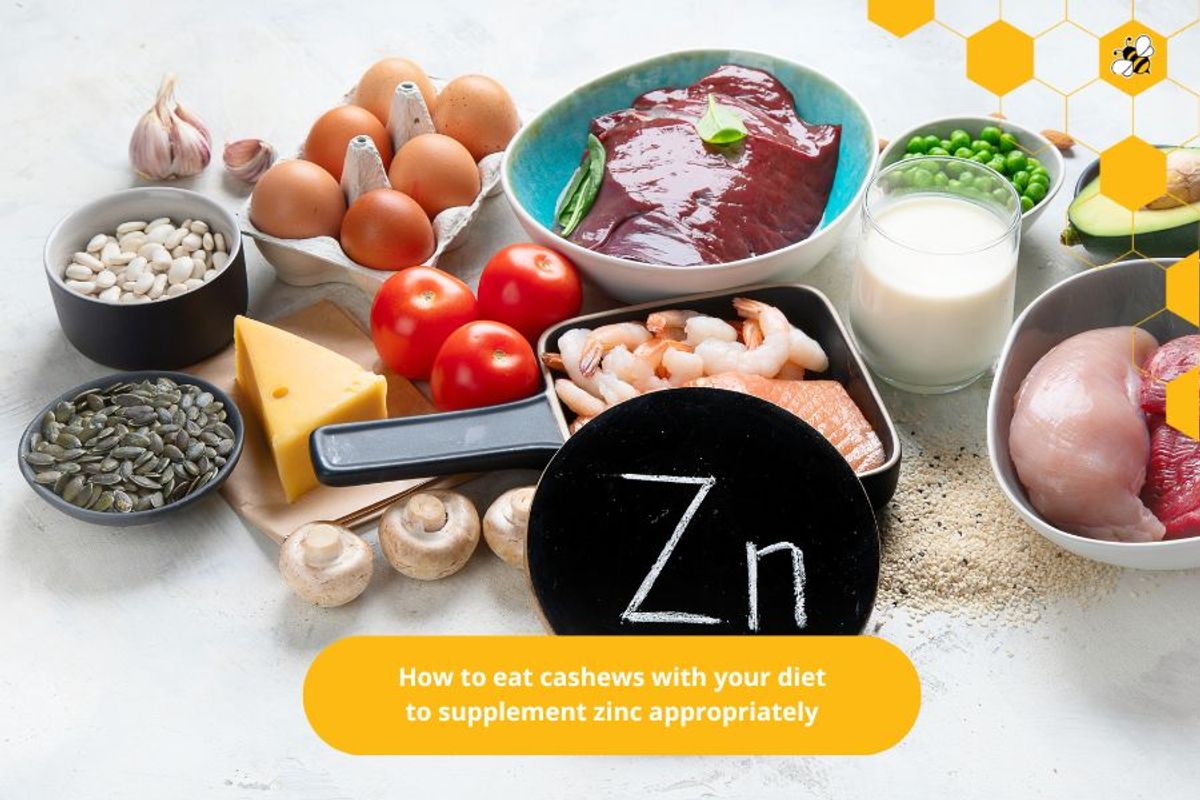
Summary
Not only is zinc an important component of cashews for your health, but cashews are also a rich source of zinc for the body. Zinc helps improve skin, supports the immune system, and participates in many other important processes in the body.
Add cashews to your diet to supplement zinc and enjoy the health benefits!
Add cashews to your diet to supplement zinc and enjoy the health benefits!